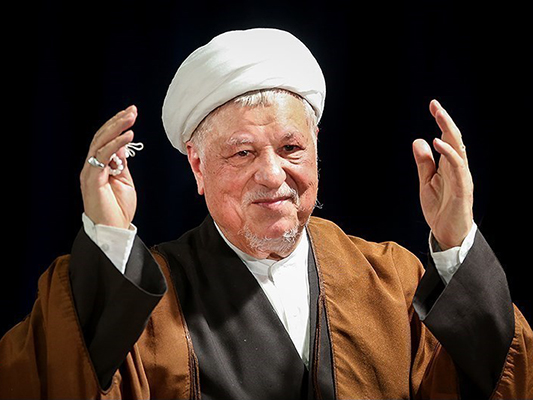In the aftermath of Ayatollah Hashemi Rafsanjani’s death, what would happen to Iran’s political boundaries? What would be the short-term impact of the tragic incident on the country’s reformists? What changes would take place in Iranian conservatives’ political orientation? What would happen in the country’s upcoming presidential elections? And finally, from a conservative point of view, what measures are required to be taken, in the short-term and long-term, by the political party opposing reformism?
In a recent Farsi report, Alef news website has tried to answer some of these questions.
Apparently, reformists will face a number of serious problems in the absence of Ayatollah Hashemi Rafsanjani.
Connection with the Establishment
Following the demise of Ayatollah Rafsanjani, reformists have lost the most important channel that connected them to Iran’s Establishment. Clearly, from now on, for such a link, they will have to count on people with whom they do not have a close rapport including Iranian Parliament Speaker Ali Larijani and the member of the country’s Expediency Council Ali Akbar Nateq Noori. Reformists have lost their bargaining power in Iran’s ruling system.
A Trustee for Traditional Society
Iranian reformists have also lost the most important factor securing their votes in the traditional stratum and body of the society. Individuals such as Iran’s former president Mohammad Khatami do not possess such a trait. Such a role, formerly played by Ayatollah Rafsanjani, can hardly be taken on by anybody else.
A Prudent Mediator
Given the abovementioned facts, Ayatollah Rafsanjani used to legitimize Iran’s reformist party, and, thus, reduced its political and social costs. The reformist camp’s legitimacy would now be subject to problems. In the absence of Ayatollah Rafsanjani, the reformist faction is expected to be less conformist, politically speaking, and become more straightforward.
What Would Reformists Do?
The reformists would, most probably, continue holding their political funeral ceremonies, commemorating Ayatollah Rafsanjani, up until Iran’s presidential elections in May to foster their solidarity.
What about Conservatives?
Thus, expressing opposition with Ayatollah Rafsanjani as a symbol, could guarantee the conservatives’ success in debates. However, they will most probably face social misunderstanding in their competitive debates in the absence of such a symbol.
No one would be able to replace Ayatollah Rafsanjani in this regard. President Hassan Rouhani is the only alternative with such a potential. Yet, he will not risk being extremely straightforward due to his position which requires taking political precautions.
Conservatives’ Do’s and Don’ts
In the short-term, it would be costly and unnecessary for conservatives to continue criticizing Ayatollah Rafsanjani in the way it was done in the past. Currently, voicing criticism against him would be, in fact, criticizing the conservatism.
In addition, any form of criticism used by the conservatives would help reformists be successful in the project of demonstrating their innocence and that of Ayatollah Rafsanjani and, thus, complete their electoral game.
At present, criticizing Ayatollah Rafsanjani needs to be aimed at reviewing the history, revealing historical facts about him and his political behaviour and learning lessons from the past, not passing on competition messages.
The conservatives currently need to focus more on the country’s main issues and let go of criticizing Ayatollah Hashemi. They should also break up Ayatollah Rafsanjani’s symbol into smaller and more meaningful units and distribute them among other available political symbols. Real symbols, such as aristocracy, Westernization, capitalism and Western culture, are required for a real competitive debate.
Rouhani’s administration, all over, is a collection of liberal dialogue symbols in the society.
Greater Unity
He added they would even become more united.
Mousavi-Tabrizi said, “Ayatollah Rafsanjani’s burial ceremony had a common message for everybody, particularly radicals and those who intend to create chaos in the country. A certain group of people plan to gain monopoly over the Iranian society and control it. This is not going to work for them. Running a country requires incorporation of all different ways of thinking and styles and respecting them.”
